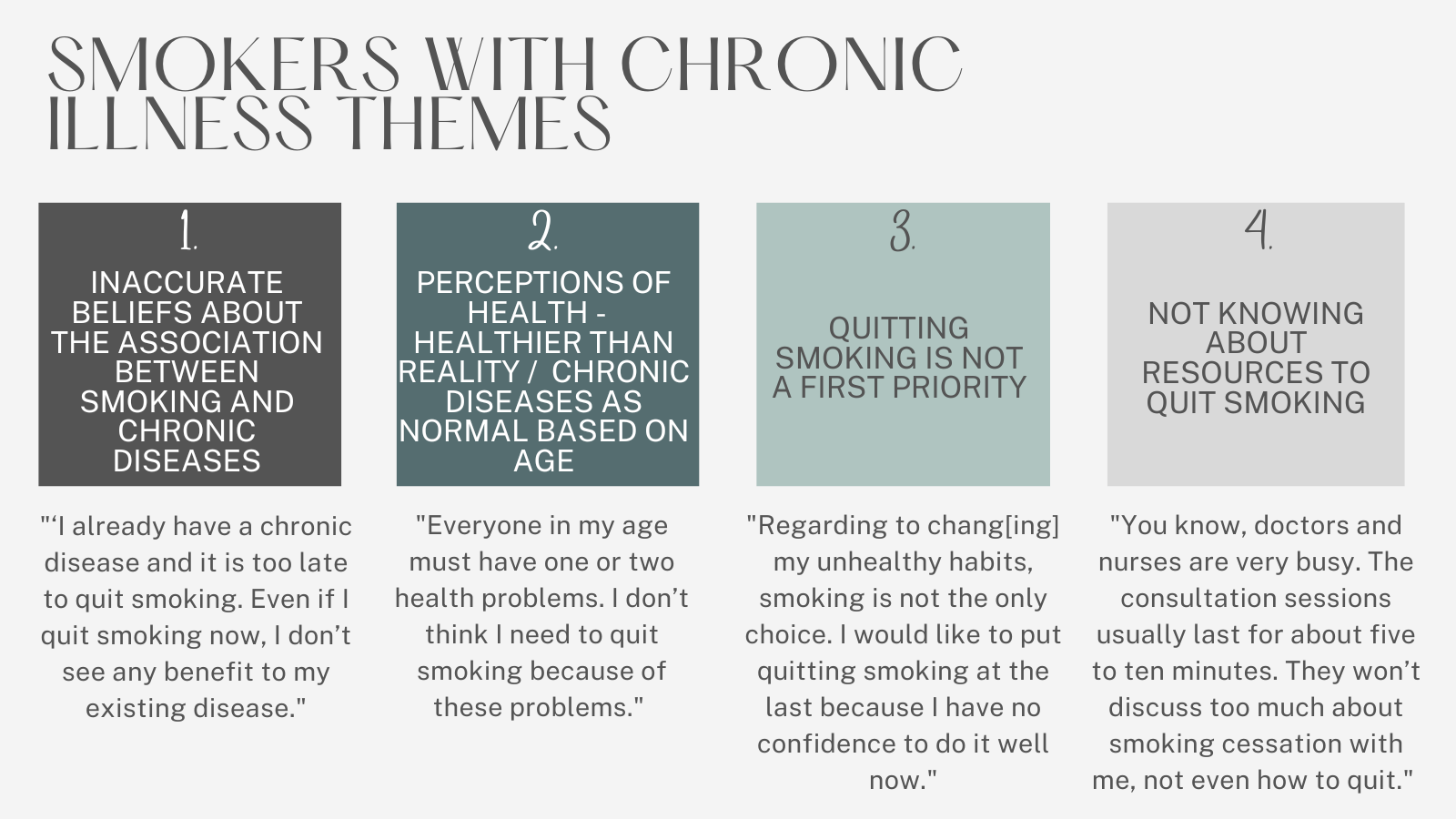Editor’s Note: Today’s review is part of our month-long Special Series on Asian American/Pacific Islander (AAPI) Addiction Research. Throughout May, The BASIS is examining forms of addiction among AAPI communities.
Chronic diseases, such as cancer, heart disease, and lung diseases, are responsible for about 74% of deaths worldwide each year. Smoking is known as the leading preventable cause of many of these chronic diseases. In some places where the overall rate of smoking has dropped, the rate among people with chronic diseases remains fairly unchanged—potentially because those smokers are especially dependent on nicotine. This week, as part of the Special Series on Asian American/Pacific Islander Addiction Research, ASHES reviews a study by Laurie Long Kwan Ho and colleagues that examined perceptions of smoking and smoking cessation among people with chronic diseases in Hong Kong, where a high rate of chronic diseases and an aging population create heavy public health burdens.
What was the research question?
What are the perspectives of adults in Hong Kong with chronic diseases on smoking and smoking cessation?
What did the researchers do?
The researchers conducted individual semi-structured interviews with 30 smokers in Hong Kong who have chronic diseases. Participants included 28 men and 2 women and had an average age of 54.6 years. Two nurses ran the interviews, starting with broad questions about participants’ chronic disease(s), health status, and then smoking habits. The researchers coded answers into categories and themes for analysis.
What did they find?
Four main themes emerged (see Figure). First, participants had erroneous beliefs about the association between smoking and chronic diseases. Participants inaccurately believed that quitting smoking would be useless after smoking for a long time and that even cessation would not impact their chronic illnesses. Second, participants discussed perceptions of health, including self-evaluating as healthy, despite having chronic diseases; or, they attributed their chronic disease to age. Participants noted other healthy habit changes they made and thus saw no need to quit smoking on top of those changes. Third, quitting smoking was not a first priority for participants. Many participants stated an interest in fixing other unhealthy habits first, believing those habits would have a stronger impact on their overall health. Lastly, a majority of participants noted an unawareness of smoking cessation resources.

Figure. Four major themes identified in interviews with smokers that have chronic illness(es) and example statements (adapted from Ho et al. 2023). Click image to enlarge.
Why do these findings matter?
This study highlights a gap in knowledge among smokers with chronic diseases and the importance for medical professionals to clearly convey the link between smoking and chronic diseases to their patients. These findings also establish the need for more general accurate health information and interventions that emphasize the benefits of smoking cessation, as well as the link between smoking and chronic diseases. The barrier of lack of knowledge about the existence of smoking cessation interventions is also important to note and guide health care professionals. Providing smoking cessation resources should be a routine part of any doctor visit where the patient is a smoker and wants to quit.
Every study has limitations. What are the limitations of this study?
This study only gathered participants from one hospital and was largely made up of males, thus limiting generalizability to other populations. Additionally, this study took place in Hong Kong where belief in the unchangeability of fate or destiny is commonly held in traditions or religions such as Taoism. Countries or regions that are more inclined to believe in free will may have differing findings.
For more information:
SmokeFree offers tools and tips for quitting and maintaining abstinence from smoking tobacco. The Centers for Disease Control and Prevention also provides research and tips about cigarettes and how to quit. For more details about addiction, visit our Addiction Resources page.
— Taylor Lee
What do you think? Please use the comment link below to provide feedback on this article.




